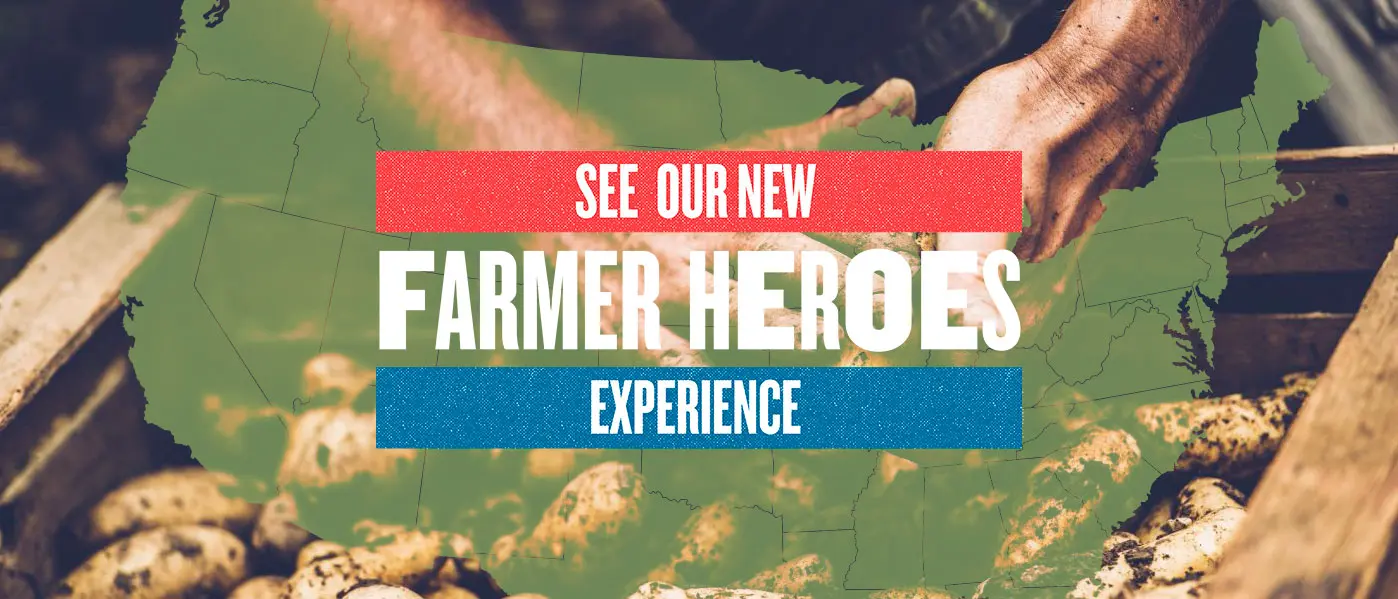Get Bentz Farm is a small family farm located outside of Northfield, Minnesota, where Theresa Bentz raises Icelandic sheep. The herd grazes freely across 30 acres of woods and prairie, mimicking their natural foraging patterns.
This land is also home to an innovative partnership between Theresa and Maddy Bartsch, who came together in 2022 to create a vibrant and unique small value-added business collaborative made up of Get Bentz Farm, Salt of the North Dye Garden and Badgerface Fiber, which is one of just four woolen mills in the Midwest.
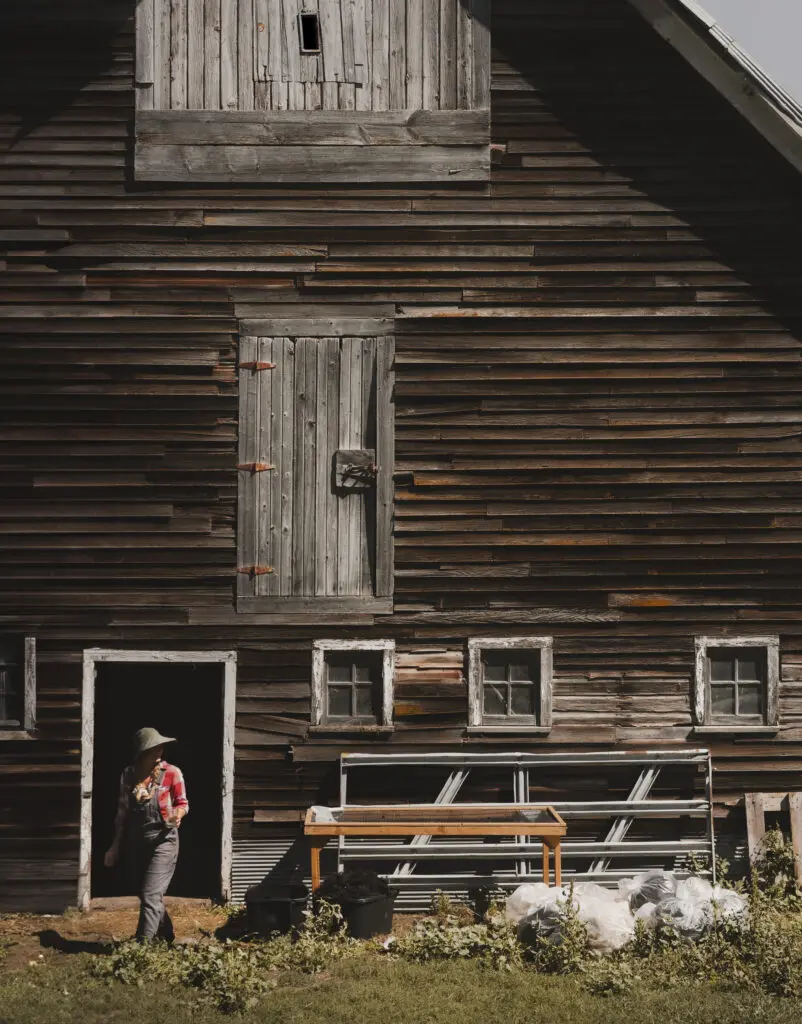
Theresa and Get Bentz barn
Get Bentz Farm
It all started when Theresa bought the land with her husband Jake in 2013. Theresa had dreams of being self-sufficient and growing her own food. She started by introducing sheep, believing their grazing would help restore the overgrown land. The Icelandic sheep at Get Bentz Farm are grass-fed and help regenerate prairies while reducing invasive plant species. Sustainability is important to Theresa, and it shows in her production methods. The farm is solar-powered; in the processing of her wool, she uses aquatic-safe soaps, and if additional fiber is needed in the products she sells, it is sourced locally, from other Minnesota farms.
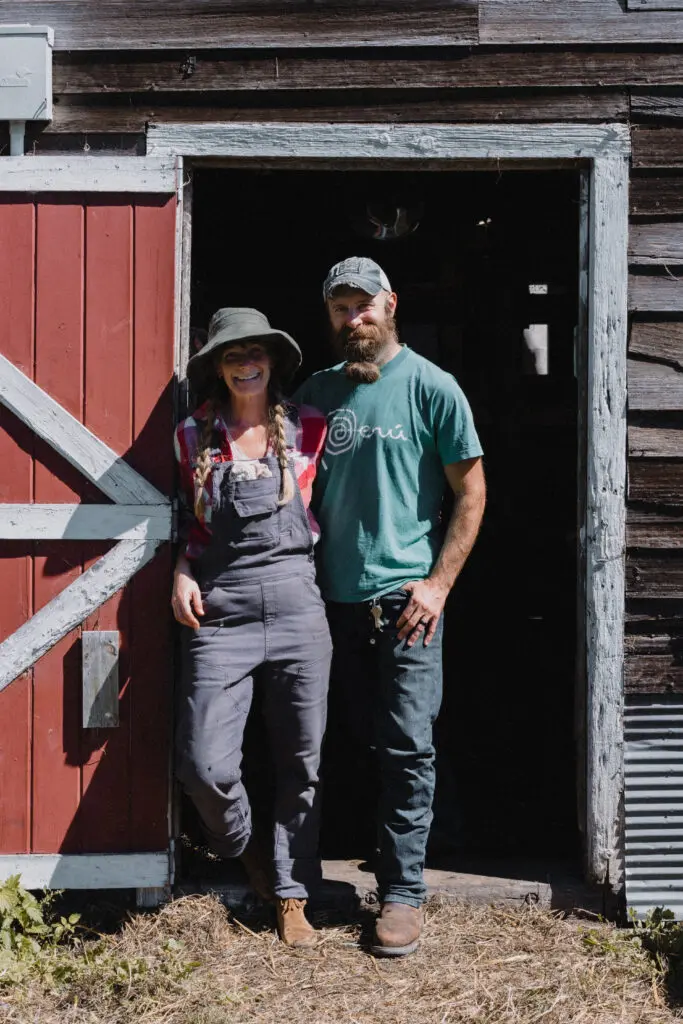
Theresa and Jake
The sheep provide many products, and Theresa tries to make full use of each animal. They are shorn each spring and fall, and their wool is used for bedding, spinning, yarn and felted products. Lamb meat is typically available in the fall, sold by the half or whole animal, with a limited supply of USDA cuts available for pickup at the farm or at local farmers markets.
Theresa’s goals stretch beyond her own work. She’s passionate about expanding Maddy’s side of the farm, which focuses on natural dye crops. “I would like to increase Maddy’s side of the farm because I really think there is a gap in the market for this,” Theresa says, highlighting their close partnership.
Salt of the North Dye Garden
At Salt of the North Dye Garden, located on a third of an acre at Get Bentz Farm since 2022, Maddy (who uses they/them pronouns) grows plants that are used as natural dyes and teaches textile arts to learners of all ages.
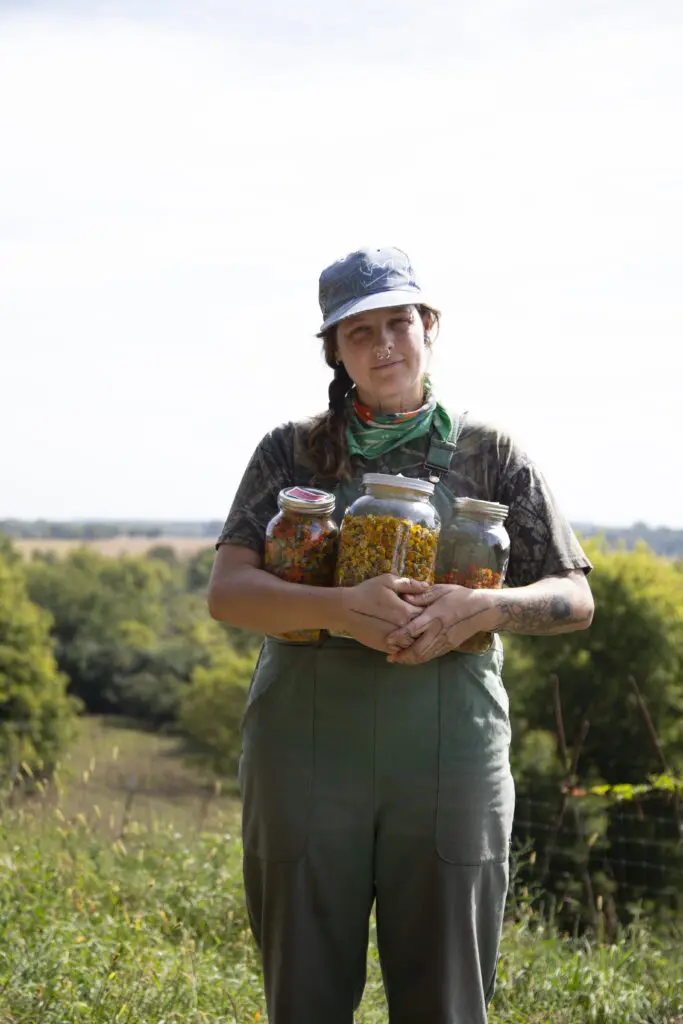
Maddy holding jars of dyed wool.
Maddy commutes two hours each day from Minneapolis to grow and harvest their crops. They bring both humor and grit to the work. Case in point: “I start multiple thousands of plants in my second bedroom in Minneapolis. Picture grow lamps and lights and everything — yeah that’s what my bedroom looks like,” Maddy explains. ”And my neighbors are like, ‘What are you doing?’ I just say, ‘Don’t worry about it. I’m just growing plants.’”
Maddy says they are the only person they know of growing this type of crop in the Midwest. “I am truly out here on my own, which is why having a farmer like Theresa who is so supportive and shares equipment and space with me is so rare and important.”
Badgerface Fiber
It all comes together at Badgerface Fiber (named after the first sheep in Theresa’s herd). Theresa’s wool is dyed by Maddy’s plants and the yarn and other products are finished at Theresa and Maddy’s on-the-farm woolen mill and sold through Badgerface Fiber. Their shop includes tanned sheepskins, taxidermy skulls, meat and wool products. Each batch is small, seasonal and unique. If you see something you love, you may have to wait a year before the sheep produce the same blend again. Many of their products are shared through farmers markets and local networks, and the farm also draws dedicated visitors.
“There’s no safety net, so if we have crop loss from harsh weather, there is nothing to keep us afloat through the hard times.”
New Challenges and Opportunities
Theresa has found that being a woman in a traditionally male-dominated role comes with its share of challenges, including sometimes dismissive attitudes. She says she often hears things like, “Well, isn’t that just cute, you’re over there knitting!” “And I’m like, ‘Wait a second… I’m actively resisting commercial production of textiles, which used to be an all-male craft!’”
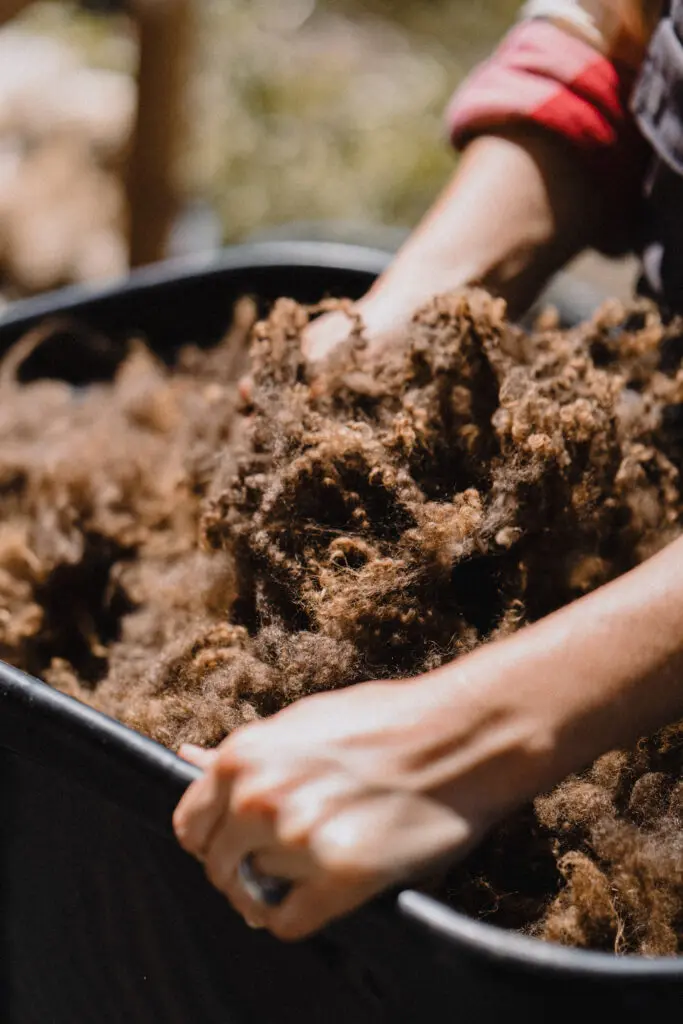
Wool being sorted and processed
Running a family farm business comes with meaningful upsides — and large barriers. Maddy explains how they strive to “meet people where they are at” in terms of pricing their products, sometimes even operating on a barter system. They say that level of connection isn’t possible in large-scale agriculture. But without the scale of industrial farms, the risks are greater to those operating small farms. “There’s no safety net, so if we have crop loss from harsh weather, there is nothing to keep us afloat through the hard times.”
Maddy and Theresa place a strong emphasis on returning to the basics and supporting local, American-made goods. During President Trump’s first term, they say the wool industry took a significant hit, as many U.S. farmers depend on international trade that was harmed by trade wars. During Trump’s second term, those same concerns have resurfaced while U.S. Department of Agriculture (USDA) funding, which many small farmers rely on, has seen major cuts, especially in programs for small-scale and local agriculture. Theresa notes, “We have seen less people at farmers markets, and the mood just isn’t as joyful. People are in a dark place mentally, and they are in a dark place financially.”
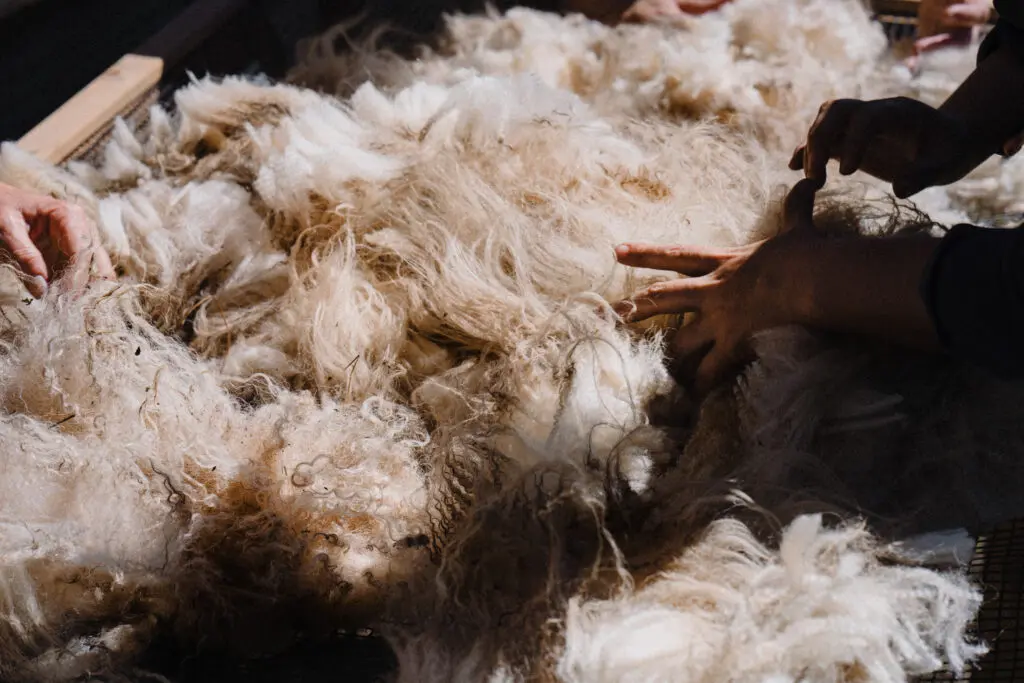
Wool being sorted
The ongoing delay of the farm bill, nearly two full years past its original expiration date, has increased the uncertainty farmers feel. Maddy explains that organizations that support farms like Get Bentz have had to pull back support because of the lack of clarity from Washington. They say, “If the organizations that offer resources and fund projects lose funding, it means we do too. It makes it really hard for small family farms.”
Theresa adds, “There has just been so much change, so fast. People are still in shock. How do we take action? If we want to keep supporting communities, we have to do this… we have to support local.”
Despite these challenges, innovation by Maddy and Theresa continues. Together, they’re developing a landscape fabric made of recycled wool that can’t be used for yarn. This is felted into sheets that farmers can use to preserve soil health and protect crops. It’s a sustainable alternative to the plastic landscape fabric that is so often used on farms. As two non-male farmers entering traditionally male-dominated spaces, Theresa and Maddy often have a sense they aren’t entirely welcome. Nonetheless, they persevere, prototyping, testing, and improving the wool fabric while always keeping sustainable practices in mind.
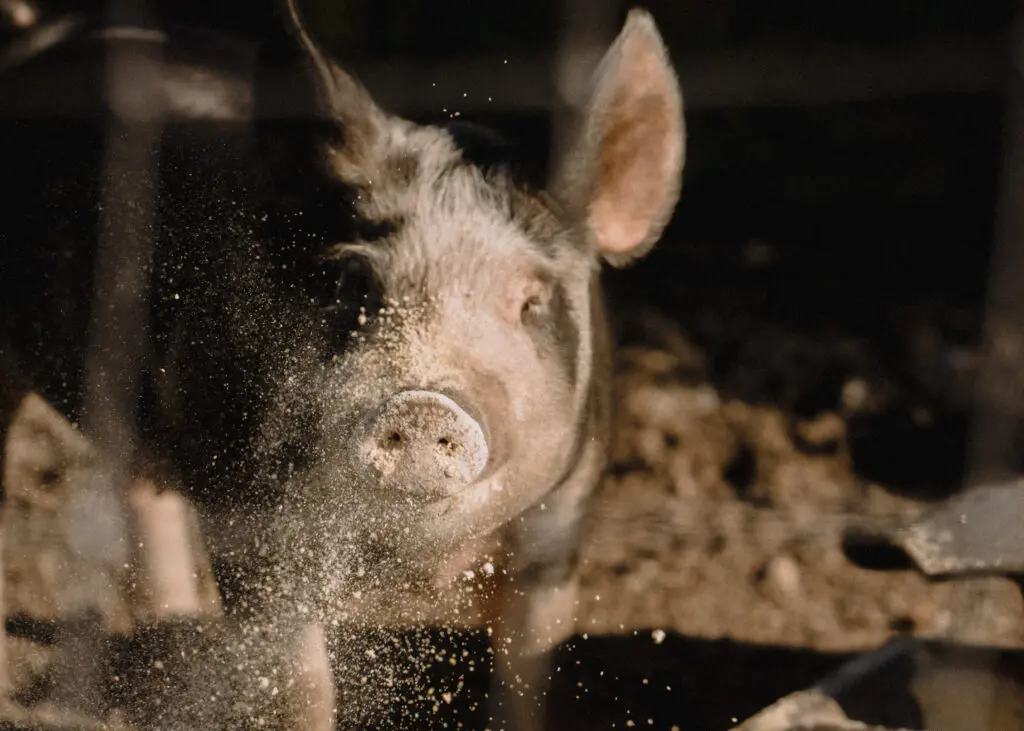
A pig that lives on the property
In a time when industrial agriculture dominates, Get Bentz Farm and the innovative partnership growing there, is a testament to what’s possible when community and creativity guide the work.
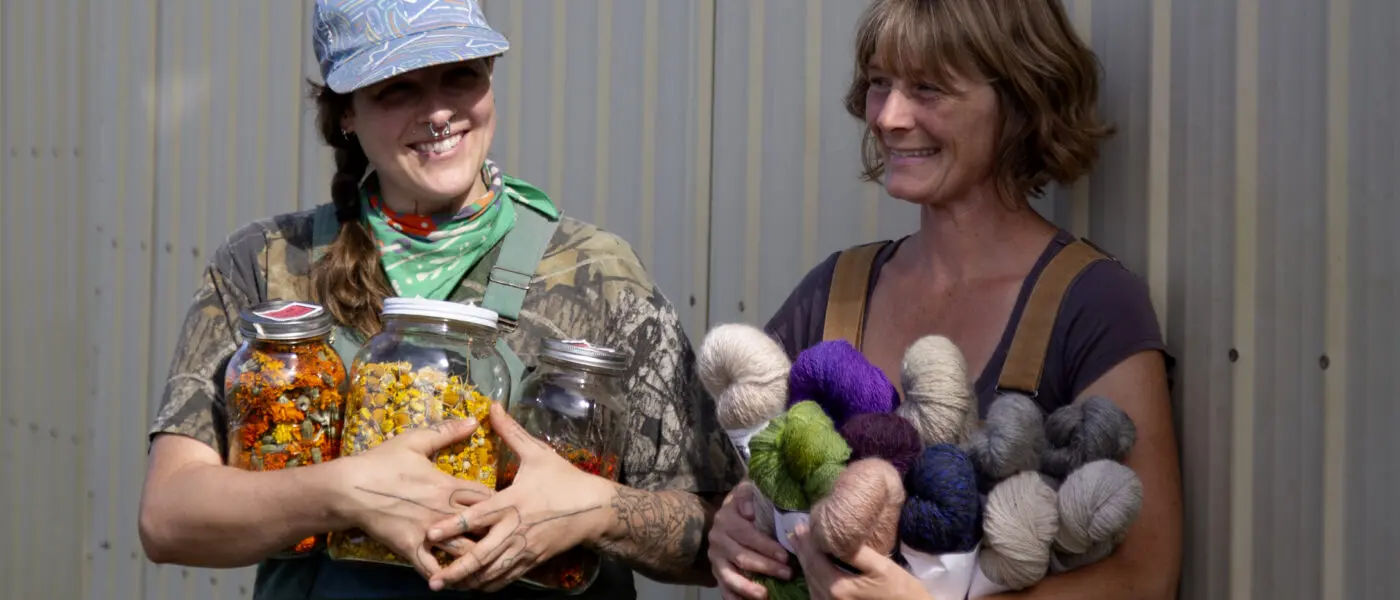
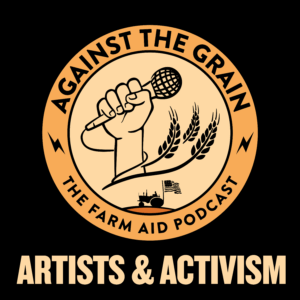 Listen to the Artists and Activism series of Against the Grain: The Farm Aid Podcast to hear from more than two dozen artists who use their art and voices as vehicles for political engagement and expression on issues that matter to them.
Listen to the Artists and Activism series of Against the Grain: The Farm Aid Podcast to hear from more than two dozen artists who use their art and voices as vehicles for political engagement and expression on issues that matter to them.



